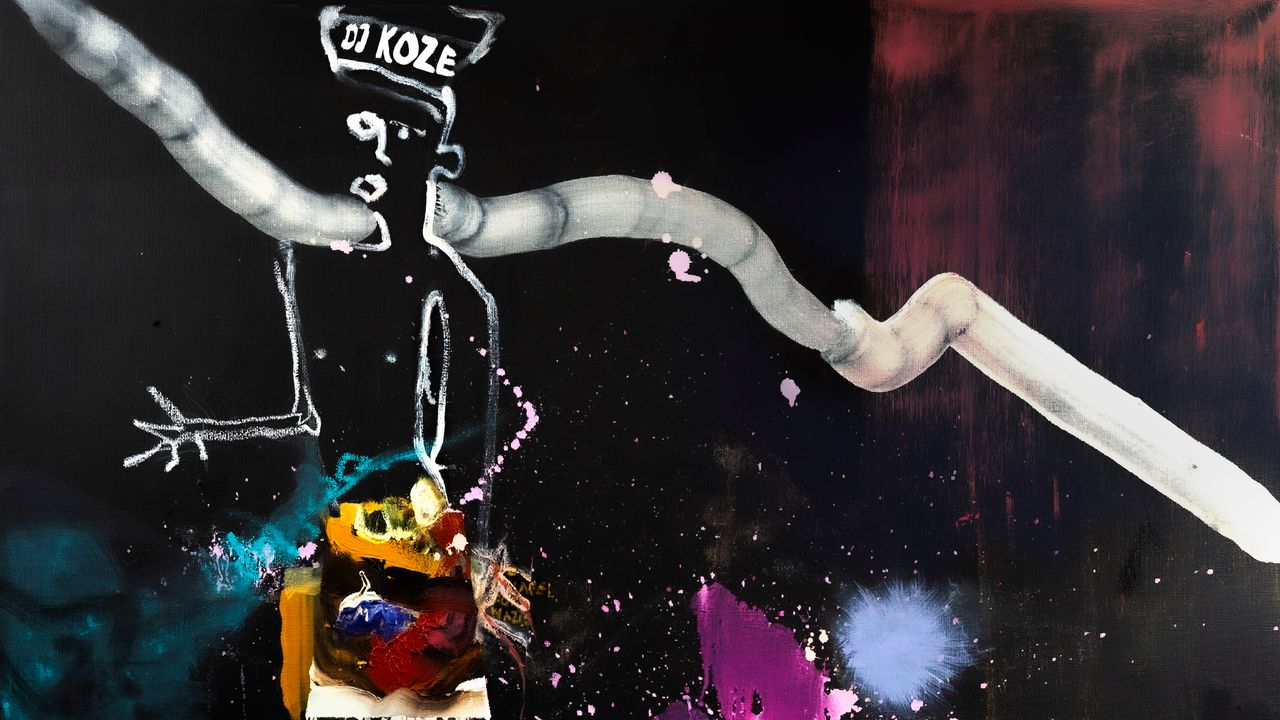Stefan Kozalla is a peerless figure in a crowded field. Once the enfant terrible of Hamburg’s Golden Pudel club, the German producer made his name in the early aughts with an idiosyncratic take on the bold colors and broad strokes of storied minimal-techno imprint Kompakt. He released one of the subgenre’s definitive late-period records on his own label—which became a fantastical sandbox for friends and fellow weirdos—then transcended it entirely on 2018’s Knock Knock, one of those Technicolor albums that renders real life sepia-toned by comparison. “It’s less competition to make music without the dancefloor in mind,” DJ Koze mused on a recent Resident Advisor podcast. “Not without reason, you have all these military terms: ‘You killed it!’ ‘It’s a weapon of mass destruction!’ ‘It’s a bomb!’” Rather than scaling EDM’s steep cliff face, he’s burrowed into it, carving out a hermitage in the stone.
That’s not to say there haven’t been setbacks. The enthusiasm around Hit Parade, the 2023 LP Kozalla made with art-pop matriarch Róisin Murphy, cratered when transphobic remarks posted to the singer’s personal Facebook page were made public. Koze didn’t share an official statement at the time, but I can’t help but hear the first words spoken on his new album, Music Can Hear Us, in that context: “I would like to start with a quote from Rumi: ‘Out beyond ideas of wrongdoing and rightdoing,/There is a field. I’ll meet you there.’” Hit Parade was supposed to be his star-making moment as much as Murphy’s, the final stage in a transmutation from eccentric dancefloor wizard to global pop savant. It’s taken a couple extra years, but Koze has finally arrived: Music Can Hear Us is a giddy collision of good taste and what John Waters called “good bad taste,” brought into harmonious coexistence by an artist whose greatest asset is his inextinguishable supply of curiosity and childlike wonder.
Following its brief foray into Sufi theology, seven-minute album opener “The Universe in a Nutshell” unfolds like a guided meditation as whorls of trilling violin and wordless hums sprout from a reverberant tabla pattern. Koze layers glockenspiel, chimes, and all manner of whimsical noise, but in his typically pranksterish fashion, the track culminates not in a beat drop—there are few to be found anywhere on the record—but with a harpsichord riff descended from the Brothers Johnson’s cover of Shuggie Otis’ “Strawberry Letter 23.” Like the cut-up Beach Boys stylings of Panda Bear, this is pop music whittled down to just the best parts, a box of Lucky Charms that’s only marshmallows. “Tu Dime Cuando” pulls off a similar sleight of hand, conjuring a phantom bolero out of Sofia Kourtesis’ sing-songy hook.
